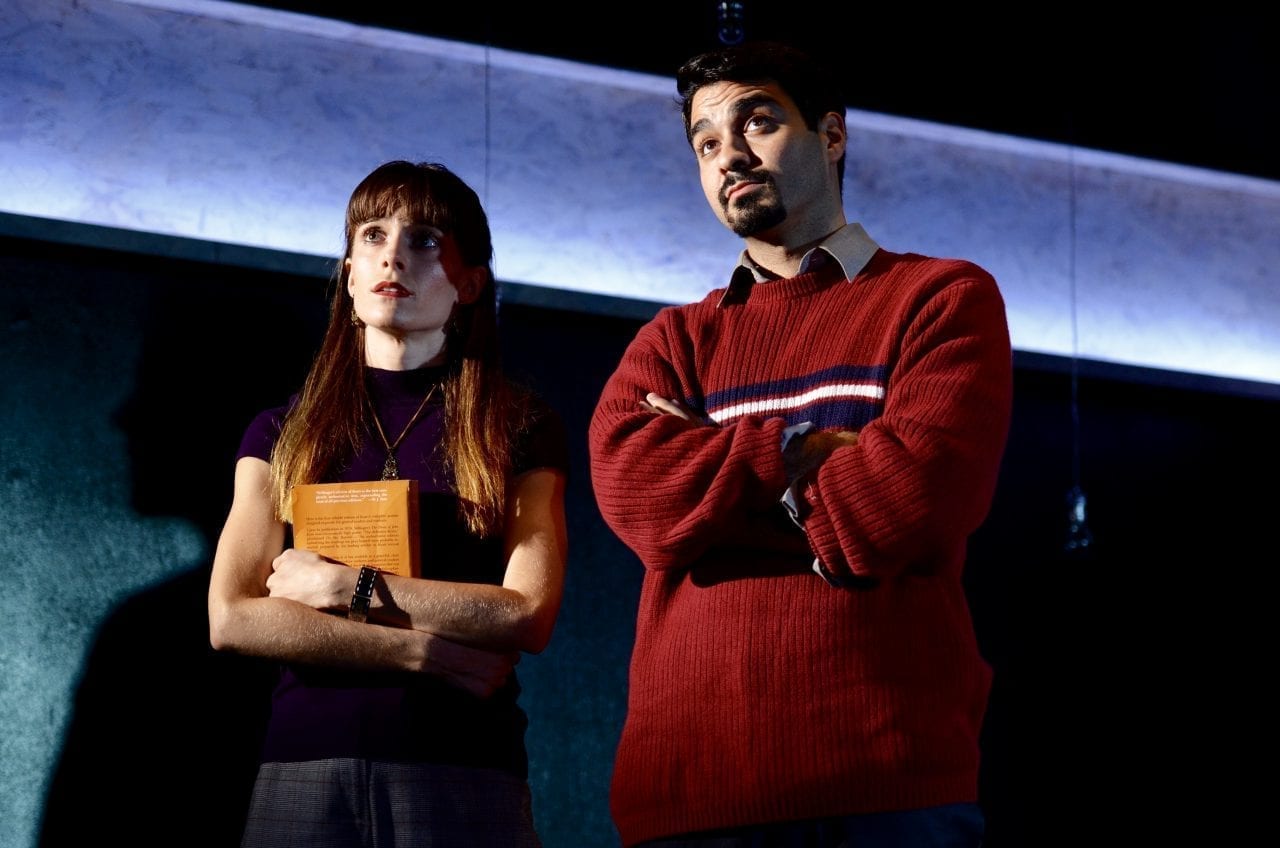Nostalgia and grief spill from each expertly-crafted line of Toni Press-Coffman’s Touch. Against a backdrop of cardboard boxes, packing tape, and makeshift stars, the play delves deep into the territory of unthinkable horror: a violent, unpredictable death and the utter helplessness of having someone you love ripped from you.
Touch opens simply on Pete McElligott as Kyle Kalke, an introverted astronomer in the midst of incessantly packing a messy apartment into boxes. It isn’t until later in the play that you realize the packing is both literal and metaphorical. In the beginning, there is only Kyle and his boxes. However, with some of the charm of a one-man-show and a bit of the reluctance of a confessional, Kyle unfolds his world with the help of only a few props and his transportive storytelling. Most of the story of Touch exists only in the mind of the audience, which in itself is a magical experience. You may find yourself adding to Kyle’s narrative memories of the halls of your own high school, your own snowy walks through Central Park.
But the pace of Touch is like a roller coaster climbing to a great height before the drop. As Kyle approaches the inevitable tragedy that his monologue has built up to, the coaster tips over the top and with a shock, the sweet and quietly sad story rushes headlong into what soon becomes a living nightmare. Characters from Kyle’s world burst on to the stage and into life loudly, forcefully, suddenly fleshing out the hazy figures of the narrative. The “shifting collection of memories” through which Kyle had been narrating morphs as well, becoming reminiscent of a sort of tragic film noir. Each character snaps between speaking to the audience as if the events of the show have already happened, and acting them out as they occur.
The dialogue is fresh, raw, ragged, and at times troubling. The brilliant and gradual addition of characters serves to explode the drama, with Amadeo Fusca as charismatic childhood friend Bennie, Emily Batsford as grieving sister Serena, and a captivating Katrina Lenk as Kathleen. The actors all deliver a thrilling (sometimes frightening) range of emotions that fill the small Theater C of 59E59: throbbing with heartache, scattered with pockets of happiness and anger, from the awkward chuckling of an introvert recalling his first kiss to defensive roars of rage and sorrow. In the intimate room of the theater, there is no choice but be dragged in, to fall in love, to be devastated, to be horrified.
Toni Press-Coffman’s play doesn’t skirt around the subject of grief. Instead, it prefers to plunge directly into it, delivering dialogue which is at its most engaging when the ugly face of suffering is thrust up to the audience without mercy. The entire company has produced a beautiful tragedy about a violence whose effects are felt universally. Refreshingly and terrifyingly, the play takes you down so many anecdotal, heartwarming, or dark paths that by the time the lights turn back on and you reach for your program, perhaps tucked into your bag or under the chair, you rediscover the title – Touch – and the gut-wrenching meaning hits you with the full force that only hindsight can deliver.

